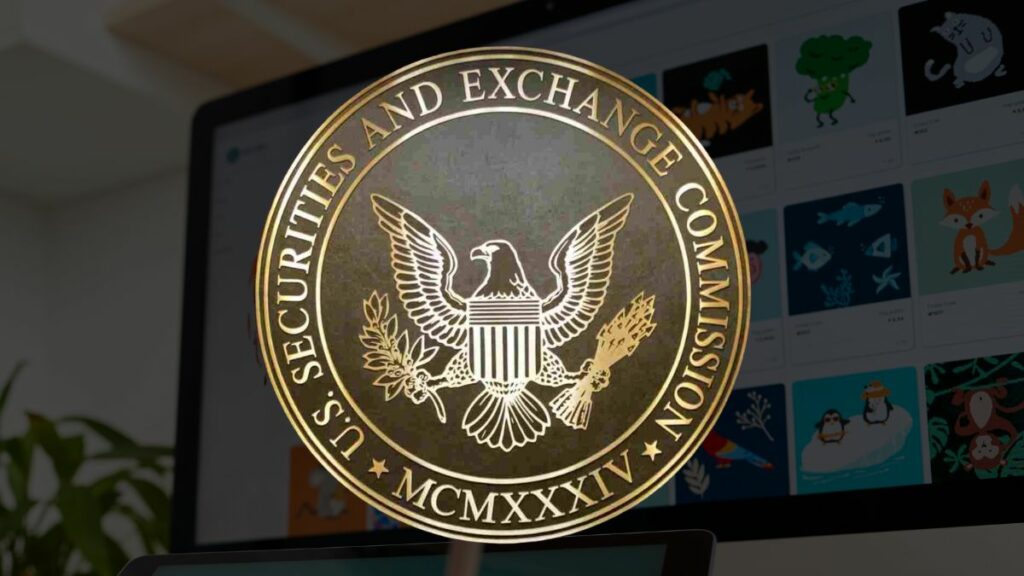The Securities and Exchange Commission (SEC) of the United States, infamous for its frivolous legal actions against cryptocurrency startups, has started its first-ever enforcement action involving non-fungible tokens (NFTs). The case centers on Impact Theory, a media company that raised funds by selling NFTs.
The agency issued a cease-and-desist order against Impact Theory and alleged that the company’s sale of NFTs was essentially an unregistered securities offering, claiming that the company managed to raise approximately $30 million from NFT purchasers.
Moreover, the company assured investors that these non-fungible tokens would facilitate the capture of economic value from its growth, creating a mechanism for communities to benefit. This assertion set the stage for the action, as the regulator claimed the NFTs were essentially investment contracts, thus classifying them as securities.

As a result, the company is asked to pay a $6.1 million fine, refund all original NFT purchasers, and destroy all of their NFTs, among other things.
SEC charged the co "Impact Theory" with an unregistered securities offering because they sold ~$30m of NFTs
They have to:
1. Pay $6.1m fine
2. Refund all original NFT purchasers
3. Destroy all of their NFTsEvery company that has issued NFTs can be liable under this ruling
😵 pic.twitter.com/q7ZAKlSI5E— Andrew "The Metaverse Guy" Steinwold (@AndrewSteinwold) August 28, 2023
The SEC Lacks a Nuanced Understanding of NFTs
The recent move by the Securities and Exchange Commission to label certain NFTs as securities raises serious concerns about the agency’s understanding of emerging technologies and its commitment to truly fostering innovation. This decision appears to be a heavy-handed attempt to assert control over the entire digital asset market, potentially stifling creativity and curtailing the freedom of individuals to engage in digital transactions.
NFTs, by nature, represent ownership of unique digital or physical assets, often as part of a broader decentralized ecosystem. Attempting to fit this diverse landscape into the traditional framework of securities oversimplifies the intricacies of NFTs and undermines the potential they hold for artists, creators, and collectors.
Notably, the impact of the decision reaches beyond Impact Theory and poses vital questions for the future of NFTs. Creators and artists utilizing NFTs to fund their initiatives now face heightened regulatory scrutiny.
Some Commissioners Disagree With the Agency
It’s interesting to see that the SEC’s decision hasn’t come without internal divisions. Commissioners Hester Peirce and Mark Uyeda raised concerns regarding the application of the Howey Test in this context.

They maintained,
“We dissented in part because we disagreed with the application of the Howey analysis.”
They questioned whether this specific case truly warranted an enforcement action, highlighting that similar sales of tangible items accompanied by vague promises haven’t historically attracted regulatory action.
However, the move to classify NFTs as securities is a misguided step that not only demonstrates a lack of understanding of these innovative assets but also threatens to stifle creativity, discourage innovation, and undermine the very essence of decentralization.
This action shows that the US Securities and Exchange Commission has completely lost sight of its mission and purpose and seems determined to eliminate digital assets altogether.
In a world where technology is advancing at an unprecedented pace, regulatory bodies, especially the Genser-led SEC, should strive to strike a balance between protecting investors and fostering innovation—an equilibrium that the regulator appears to have failed to achieve in this instance.










